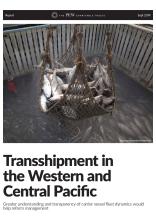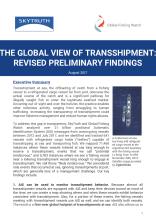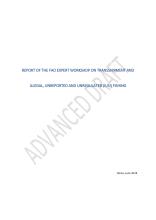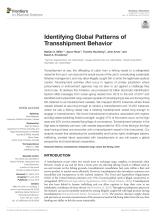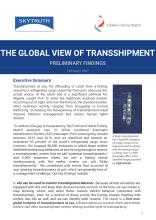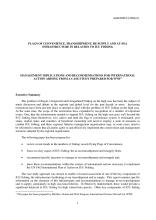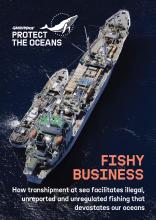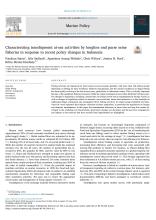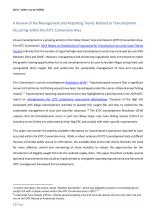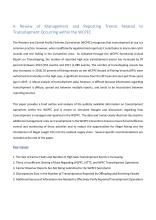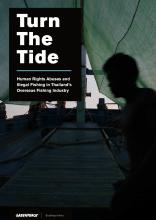Transshipment in the Western and Central Pacific - Greater Understanding and Transparency of Carrier Vessel Fleet Dynamics would Help Reform Management
This report analyzed the movements of carrier vessels operating in the Western and Central Pacific Fisheries Commission (WCPFC) Convention area in 2016. Through analysis of AIS data, the report identified carrier vessel voyage patterns and quantity, carrier vessels' flag state patterns, the spatial distribution of potential transshipment on the high seas, and the port visit locations by carrier and flag states. The report also found that many carrier vessels did not transponder on AIS, leading to significant gaps in data on unreported transshipment events. Ultimately, the WCPFC’s management of transshipment in its Convention area is compromised by a lack of reported information on transshipment, coupled with non-compliance with reporting requirements and non-standardized reporting responses by CCMs on carrier vessels and their activities.
Topic
Language
